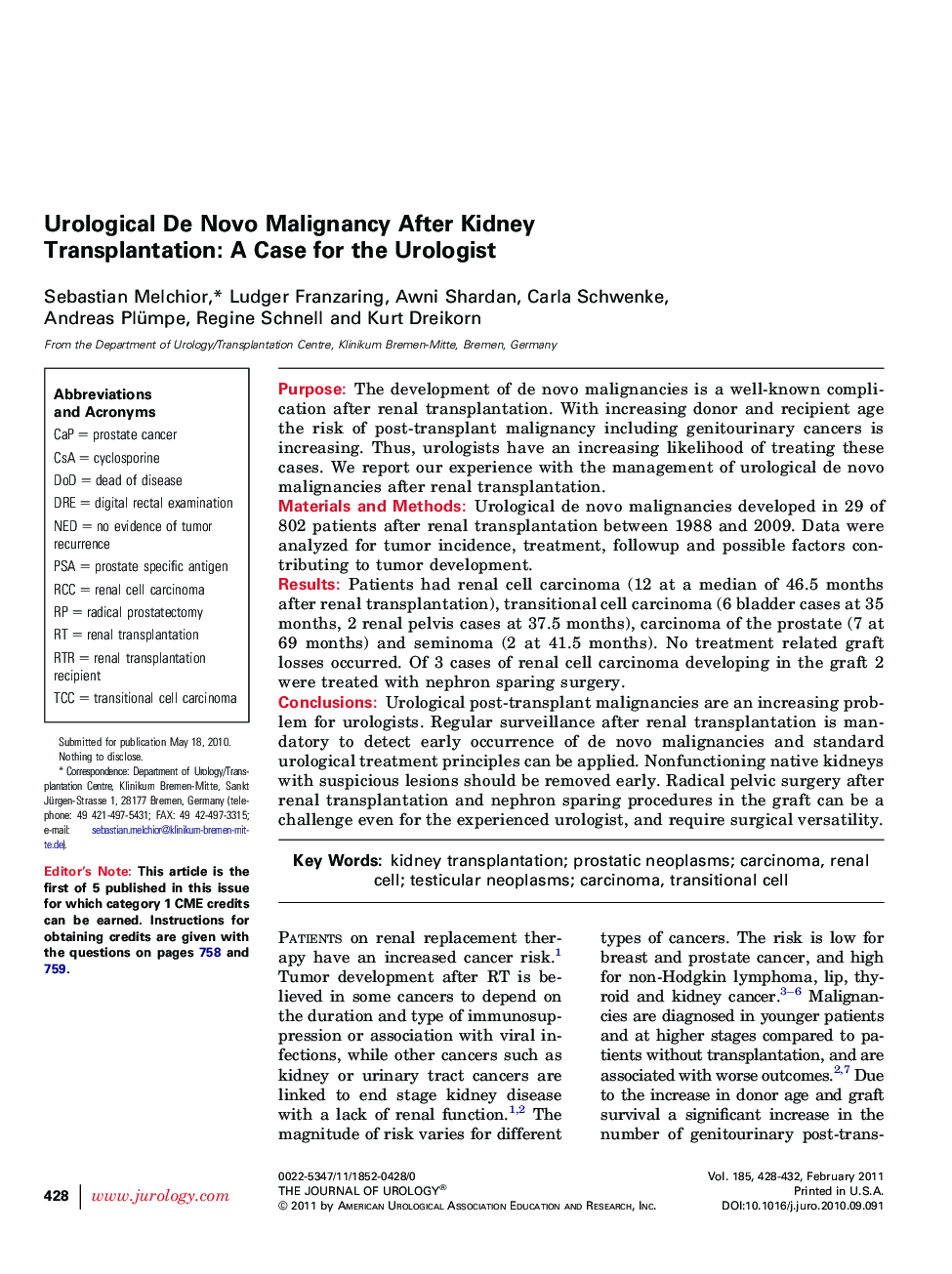| Article ID | Journal | Published Year | Pages | File Type |
|---|---|---|---|---|
| 3871204 | The Journal of Urology | 2011 | 5 Pages |
PurposeThe development of de novo malignancies is a well-known complication after renal transplantation. With increasing donor and recipient age the risk of post-transplant malignancy including genitourinary cancers is increasing. Thus, urologists have an increasing likelihood of treating these cases. We report our experience with the management of urological de novo malignancies after renal transplantation.Materials and MethodsUrological de novo malignancies developed in 29 of 802 patients after renal transplantation between 1988 and 2009. Data were analyzed for tumor incidence, treatment, followup and possible factors contributing to tumor development.ResultsPatients had renal cell carcinoma (12 at a median of 46.5 months after renal transplantation), transitional cell carcinoma (6 bladder cases at 35 months, 2 renal pelvis cases at 37.5 months), carcinoma of the prostate (7 at 69 months) and seminoma (2 at 41.5 months). No treatment related graft losses occurred. Of 3 cases of renal cell carcinoma developing in the graft 2 were treated with nephron sparing surgery.ConclusionsUrological post-transplant malignancies are an increasing problem for urologists. Regular surveillance after renal transplantation is mandatory to detect early occurrence of de novo malignancies and standard urological treatment principles can be applied. Nonfunctioning native kidneys with suspicious lesions should be removed early. Radical pelvic surgery after renal transplantation and nephron sparing procedures in the graft can be a challenge even for the experienced urologist, and require surgical versatility.
